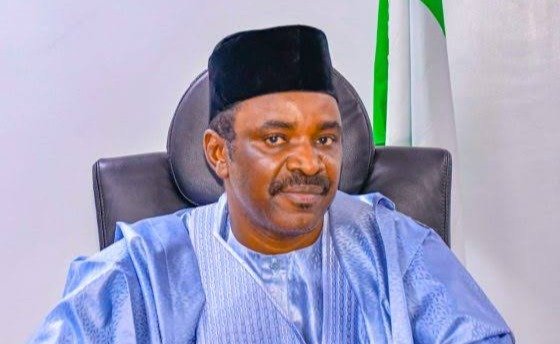Nigeria’s rail transport system could soon become one of the country’s biggest sources of revenue after the oil sector, said Transport Minister Sen. Saeed Alkali.
Mr. Alkali said this while speaking during an inspection tour of the ongoing Kano-Daura-Maradi rail project, along with members of the Senate Committee on Land Transport who were there to inspect it.
The minister highlighted the growing interest of various state governments in the railway sector, noting that investments in Lagos, Plateau and Kaduna are signs of expansion of the national railway network.
Alkali also stressed that “the separation of the railway sector is designed to enable the participation of the private sector.”
“The Federal Government is investing heavily in infrastructure and the commencement of cargo transport from Lagos to Maradi under the African Continental Free Trade Agreement will generate significant revenue and have a significant impact on Nigeria’s GDP. Dew.”
He added that plans are underway to link Port Harcourt and Onne Port to Maiduguri via Aba, which he believes will transform the country’s transport infrastructure and make rail transport revenues comparable to oil. Ta.
Alkali also revealed that the Daura Jiaotong University will provide specialized training to students to enable them to manage the country’s evolving transport system.
Furthermore, he referred to improvements in railway construction and confirmed that compensation would be provided to those affected by the project.
Meanwhile, Senator Adam Ariello, Chairman of the Senate Surface Transportation Committee, praised the progress on the rail project.
He expressed the Senate’s full support for the initiative, highlighting the potential economic benefits while acknowledging that more work is still needed.
Ariello said progress so far has been primarily funded by the Nigerian government, with comparable funding from international partners still pending.
At Jiaotong University in Daura, Mr Ariello praised the efforts of the university establishment, but stressed the need to expand the facilities to accommodate more students.
“Currently, universities can only admit 1,300 students out of 5,000 applicants. The federal government must invest in expanding infrastructure,” he said.
The Kano-Maradi rail project, which began in 2022 under the administration of former President Muhammadu Buhari, is expected to cost more than $1.9 billion, equivalent to 400 billion naira.
The federal government will provide 15% of the funding, while the partnership will raise 85% of the funding as a loan, to be repaid over 50 years with a target completion date of December 2026.
The railway line will connect Kano and Jigawa and extend from Niger to Maradi, with a new branch line being opened from Kano to Dutse in Jigawa.
Covering approximately 400 kilometers of 13 stations across Kano, Jigawa and Katsina states, the project aims to integrate rail and road transport and improve both passenger and freight services in the region. There is.
Once operational, the railway is expected to carry 9,300 passengers and 3,000 tonnes of cargo daily, thereby boosting agricultural and manufacturing activity along the line.

